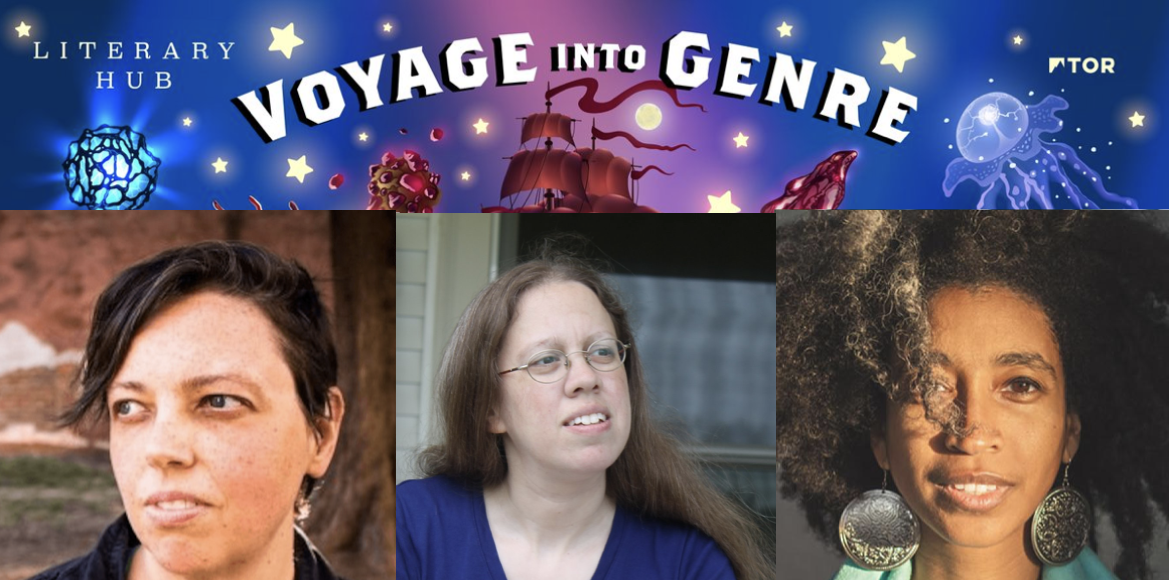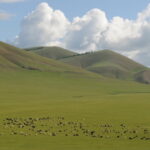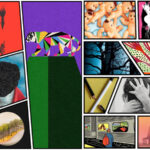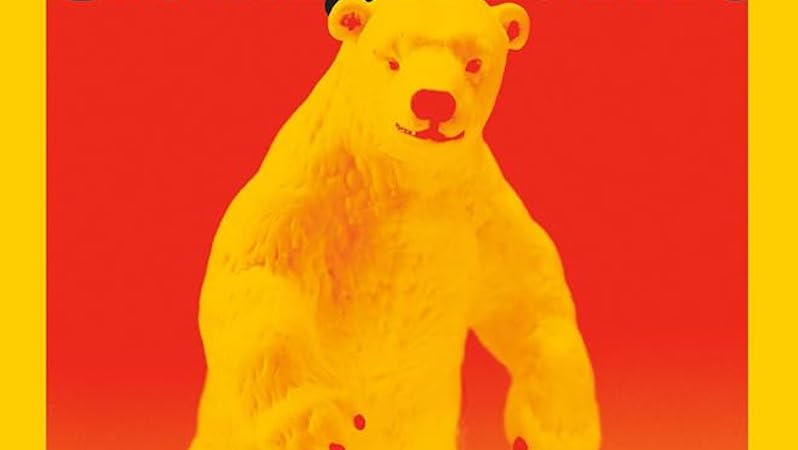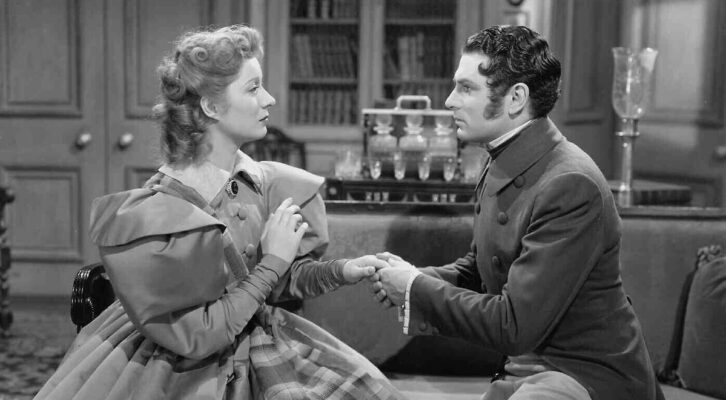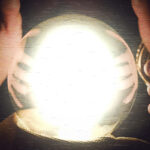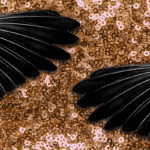How to Live in Nature: S.L. Coney, Ruthanna Emrys, and Alexis Pauline Gumbs
Tor Presents: Voyage Into Genre S03E03
Tor Books, in partnership with Literary Hub, presents Voyage Into Genre! Every other Wednesday, join host Drew Broussard for conversations with Tor authors discussing their new books, the future, and the future of genre. Oh, and maybe there’ll be some surprises along the way…
What a summer it has been! In my neck of the woods, it wasn’t hot enough and then it was way too wet and then it was briefly nice before everybody decided it was an early autumn only for a brutal heat wave to swing through. Weird stuff, and that seems true for everybody. Even the people who were inclined to deny climate change seem to be coming around, which is a silver lining I suppose.
This week, we head off on three separate journeys that get our hands dirty, force us to breathe that good good oxygen, and which remind us that we are a part of the natural world and not separate from it. First, S.L. Coney puts us in the Wild Spaces of South Carolina for a coming-of-age tale like no other, featuring childhood memories and a very good dog. Then, Ruthanna Emrys imagines first contact on the Chesapeake in A Half-Built Garden and we discuss what it might take for humanity to survive, and why a novel is a very good place to argue with yourself. Finally, Alexis Pauline Gumbs (Undrowned) offers a meditation on curiosity and re-learning in order to be a more generous part of the natural order.
See you in two weeks,
Drew
Subscribe and download the episode, wherever you get your podcasts!
Read the full episode transcript here.
*
S.L. Coney on Coming of Age and Family Secrets:
We all have things universal that we experience as we grow up. Anything I think that deals with coming of age is gonna resonate with us because it is a very powerful time in our life, and so we have strong memories tied to that. So first, there’s that piece. As far as like the mother and the father, the father is, I mean, he’s totally thinking about puberty for the boy, right? He’s totally thinking about things in the natural world. ’cause this is what he knows. so they’re all, yes, they’re all looking at the boy, but they’re all seeing different things.
And if we think about the mother, if we think about her as a person who is coming from a past that she has run all the way across the country to get away from, she’s trying to start out new. If you have this sort of baggage, this kind of weight in your past, she’s probably not gonna tell people. Right? Even her husband, you know, she may tell him a little bit, we get the understanding that he knows a little bit.
But it’s not uncommon, especially if you have grown up in a family where there are secrets or there is some sort of shame, to perpetuate that. It’s kind of what we do in family systems. We perpetuate these same behaviors even if we don’t want to, or even if we don’t mean to sometimes, and so she is perpetuating this traumatic thing that happened in her past. She’s perpetuating the secrets of it even if she’s trying not to go down that same path and it doesn’t have to be some big, bad secret, It doesn’t have to be that, it can be a small thing that somebody might feel shame about, like shame is incredibly damaging. So it’s something that is not just experienced in families where there are abusive situations or this trauma. Any family can have secrets.
*
Ruthanna Emrys on Imagining a Future Technology That Isn’t Bad for People:
One of my areas of interest is the psychology of technology and how we think about it and how we interact with it. I started using the internet when I went into college in the nineties and I loved it and I love having a big worldwide network that connects everyone, and I can see that it has gone very bad places.
And I tried and I tried and I was like, I cannot come up with a positive future in which we still have this internet. I do not see those as being compatible and I hate that. So the smaller, more sort of separated Dandelion networks were an exploration of what we would have to lose in order to gain something more human scale in our technology.
And one of the things I was thinking about as I wrote these technologies is what would it take to have technology that’s designed around having a setup that helps people maintain their mental health and to think better, rather than being required to shape our psychology around the technologies that are offered to us, technologies that we know are psychologically bad for us, even while they’re also psychologically good for us in some ways. There’s just no end to the good news and the bad news and the good news and the bad news. And so I was looking for a different balance, I wanted something that would feel more like a good fit to people’s brains and more something that you could customize to the way you’re comfortable thinking and the level at which you’re comfortable being thoroughly networked and that would give you connections to other people who could help solve problems. But it does have its downsides and it does, you know, it’s very much a cyborg set up in which, and we have this now when it goes away.
How much of your work can you do when your technology breaks down?
*
Alexis Pauline Gumbs on Unlearning the Human Impulse of Separation From the Natural World:
I think at it’s root, what I am unlearning is an idea of separation. An idea that the natural world exists and I exist separately, and I can just reflect upon the natural world sometimes as a metaphor for what I’m feeling, and that’s a cop out. At the end of the day, I am a part of the natural world, right? It’s not a metaphor, what I’m feeling is relevant to nature because I am nature.
And this separation, I mean, it’s not like we invented it as a convenient cop out for our impact on climate change, right? This has a very old history. Sylvia Winter charts out a whole intellectual history of colonialism, like how could it be that people would imagine that there was something called humans separate from nature? And that’s a great question because we completely are intertwined with and interdependent with the entire rest of the natural world.
So I started to think about the fact, well, okay, so as a poet, am I complicit in regenerating this idea of separation by acting as if these images of nature are just convenient metaphors that could be useful in an idea that still says that I’m an individual and I have this subjectivity, and there could be parts of me, even my interior life, that are separate from the rest of the growing, changing, screaming, struggling, overheating–in the case of what’s going on right now–natural world.
______________________
Tor Presents: Voyage into Genre is a co-production with Lit Hub Radio. Hosted by Drew Broussard. Studio engineering + production by Stardust House Creative. Music by Dani Lencioni of Evelyn.

